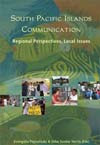 By Pippa Brown: Pacific Media Centre
By Pippa Brown: Pacific Media CentreFiji continues to head into a political and economic hole as Fiji’s military regime tightens its grip and communications in the country are heavily censored.
The regime now plans to begin broadcasting its own television programme in a deal with Fiji TV, and to publish a newspaper insert in the Fiji Sun, the second-largest daily.
The unanimous decision to suspend Fiji from the Pacific Islands Forum earlier this month further compounded Fiji’s woes.
The PIF responded to Commodore Voreqe Bainimarama’s failure to return Fiji to democratic governance by May 1 and name a date for elections this year.
“A regime which displays such a total disregard for basic human rights, democracy and freedom has no place in the Pacific Islands forum,” said the Forum chairman, Niue Premier Toke Talagi.
The forum will ensure that Fiji does not benefit directly from any regional cooperation initiatives, new financial or technical assistance until it returns to democratic rule.
Amnesty International is extremely concerned about the volatility of the situation. It says the human rights situation is getting worse by the day and the civilian population is living in fear as a result of draconian measures implemented by the military regime.
“What is developing is a nature of extreme fear and intimidation.
“As well as the media clampdown, the regime is now believed to be monitoring email traffic, blogs and telephone conversations,” says Pacific researcher Apolosi Bose after a trip to Fiji last month.
‘Chilling effect’
The censorship has affected the way people work and has had a “major chilling effect” on the operations of a non-government organisation whose work is critical for standing up to human rights abuses, says Bose.
Oxfam New Zealand executive director Barry Coates thinks communications have not entirely shut down.
“Technology and communications are still available through the internet. Ten percent of citizens have internet access; mainly in urban areas as a lot of rural areas still have traditional lifestyles,” says Coates.
China has an influence on Fiji and other Pacific nations.
“The influence of New Zealand and Australia is disappearing and there is a real problem with foreign policy,” he says.
China is not condemning Fijian policies and now gaining influence in the region.
The Chinese government has been accused of propping up the military regime by supplying hundreds of millions of dollars in aid, according to a Lowry Institute analyst, Fergus Hanson.
The Australian reported that although China maintains a strong relationship with Fiji and other Pacific nations, it does not want to be seen as the new international protector filling Fiji’s international relations vacuum, or writing cheques to underpin the country’s collapsing revenues.
Foreign exchange
Foreign exchange remittances sent home by Fijian peacekeepers are said to be worth millions of dollars a year to the Fijian economy.
The Chinese news agency Xinhua reported that the UN will continue to use Fiji police and soldiers in its current peacekeeping missions but will not increase the numbers in future deployments.
There are more Fijian police working under its peacekeeping mandate than soldiers, said the UN Under-Secretary-General for Political Affairs, Ly Pascoe, during a conference in New York recently.
Bruce McConchie has extensive global experience within the development area through both government aid projects and NGOs over a period of 35 years.
He says that NGOs hold a distinct advantage in aid projects.
“They are better at reaching the poorest as they operate at grassroots level and are more effective at managing micro-finance initiatives. They commit to the lengthy time frame required to make a difference,” he says.
“They are used to times of strife and operating in an environment of poor communication,” he says.
Providing the resources are still available, the lack of communication isn’t a problem. NGOs operate best on mobilising and encouraging other people.
They are not solely dependent on outside resources and work effectively with what is available in their immediate environment. Change is often not obvious for another 10 to 15 years, he says.
Squatter settlements
Oxfam’s Barry Coates says there has been an increase in squatter settlements around Suva.
Relations between New Zealand and Australia toward Fiji have cooled further after both countries snubbed an attempt by Commodore Bainimarama for a summit with Prime Ministers New Zealand John Key and Australian Kevin Rudd.
Bainimarama expressed frustration with both prime ministers and their attitude at his attempts to rid Fiji of racism and undertake electoral reform before elections in 2014.
An election this year would restore the “racist” government of former Prime Minister Laisenia Qarase, whom he disposed at gunpoint in 2006, according to The Australian.
Can Fiji sustain itself operating alone in this environment?
“The problems are enormously complex,” says Coates. It is partly due to the coup and partly due to a decline in Fiji’s economy. The textile industry is breaking down as more manufacturing is going to China.
There have been major disruptions in the sugar and tourism industries. The impact on tourism is due to the coup.
Tourists nervous
“It made people nervous about going there with the military running the country,” he says.
The sugar industry and international trade issues are due to European Union policies.
“They are protecting their own distributors.” The EU suspended its $170 million aid package to Fiji’s sugar industry, the second- largest after tourism, following the coup and says future help depends on democracy being restored.
Coates says it is difficult to see how this situation is going to play out in the long term.
“Without the restoration of democracy, the rights of minorities like the Indo-Fijians will suffer,” he says. He believes tension is building and the Fijians are suffering economically.
Pippa Brown is a Graduate Diploma in Journalism student who is on the AUT Asia-Pacific Journalism course. Photo: Pacific Media Centre.






















No comments:
Post a Comment